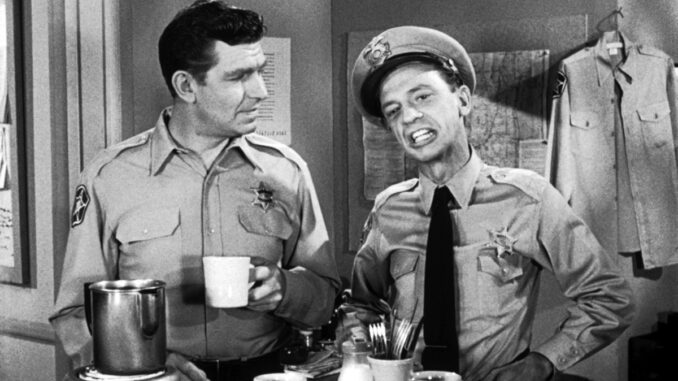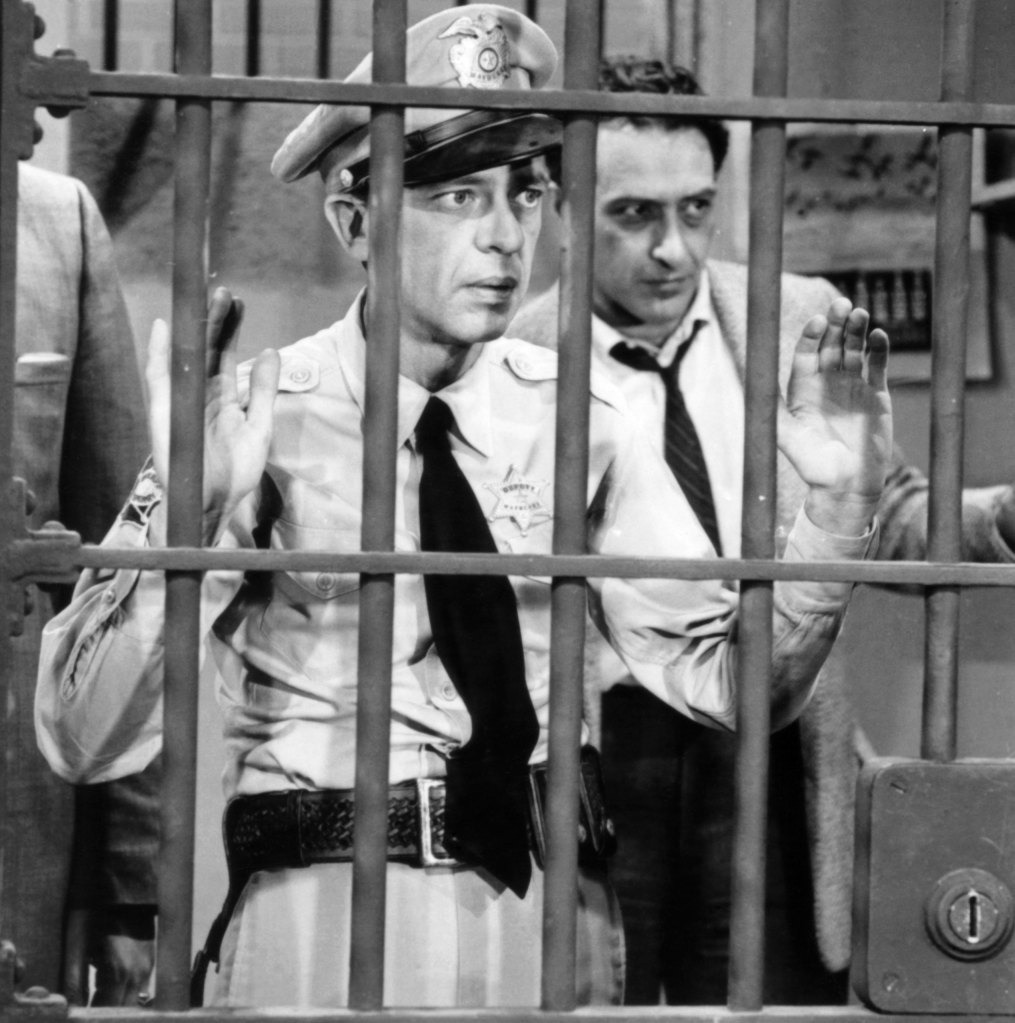
Don Knotts Would Write Poetry in His Time Away from The Andy Griffith Show
When you think of Don Knotts, one image likely flashes into your mind: the bug-eyed, anxious Barney Fife from The Andy Griffith Show. His comedic timing was flawless, his expressions unforgettable, and his role as the deputy of Mayberry won him five Emmy Awards. But few fans know that behind all the slapstick and charm, Knotts had a deeply introspective side—one that found expression not in comedy, but in poetry.
Let’s dive deep into the surprising artistic outlet of Don Knotts and how poetry became his hidden refuge amid the chaos of television stardom.
The Comedic Genius Behind Barney Fife
Before we explore his poetic side, it’s crucial to understand the magnitude of Don Knotts’ role in The Andy Griffith Show. His portrayal of the bumbling but lovable Barney Fife turned him into a household name and a comedic icon.
A Star in Mayberry, A Poet in Private
While most of the cast and crew assumed Knotts spent his downtime relaxing or memorizing lines, he was often scribbling verse. According to those close to him, poetry became a way for Knotts to process his thoughts, emotions, and the pressures of fame.
Why Would a Comedian Turn to Poetry?
This might sound like a paradox. Comedy and poetry seem worlds apart. But for Don Knotts, the contrast made perfect sense. Laughter may have paid the bills, but poetry nourished his soul. In a world where he was expected to be funny every waking moment, writing poetry gave him permission to be serious—even vulnerable.
The Creative Process of Don Knotts
Writing During Rehearsals and Breaks
Unlike many actors who might chat or nap between scenes, Knotts could be seen quietly writing in a notebook. Whether backstage, in his dressing room, or outside under a tree on set, his pen was never far away.
The Themes of His Poetry
According to friends and surviving writings, Knotts’ poetry was deeply personal. He wrote about:
-
Loneliness in the spotlight
-
Memories of childhood in West Virginia
-
Fears of fading fame
-
Spiritual reflections
-
Longing for peace away from the screen
These weren’t just idle musings—they were thoughtful, structured, and at times, heartbreaking.
Was He Any Good?
Though he never published a collection during his lifetime, those who read his work say it was surprisingly profound. His poems may never win a Pulitzer, but they revealed a man who thought deeply, felt intensely, and craved authenticity.
A Man of Many Layers
From Laugh Tracks to Lyrical Lines
It’s easy to box performers into a single identity. For Don Knotts, it was “the funny guy.” But as his poetry proves, he was far more than just a comedic actor—he was a layered human being with private battles and artistic longings.
The Connection Between Comedy and Pain
There’s a well-known saying in showbiz: comedy comes from pain. Many great comedians, from Robin Williams to Richard Pryor, have wrestled with inner demons. Knotts wasn’t an exception. His poetry served as both mirror and medicine.

Influence of His Upbringing on His Writing
Growing Up in West Virginia
Knotts’ upbringing in the small town of Morgantown shaped much of his worldview. Raised during the Great Depression, with a father who suffered from mental illness, Don knew hardship early on. These roots show up often in his verses, both in the form of imagery and emotional tone.
Escaping to Art
For Don, art wasn’t a luxury—it was an escape. Acting gave him a stage, but poetry gave him silence. A place where he didn’t have to perform, impress, or entertain. Just be.
What Did His Co-Stars Think?
Andy Griffith’s Perspective
Andy Griffith, a close friend of Knotts, reportedly admired his private hobby. Though Griffith was the more musically inclined of the two, he respected Knotts’ need for creative solitude. He once said in an interview, “Don had this stillness in him. When he wasn’t acting, he was writing. He’d disappear with a notebook and come back a little more at peace.”
The Rest of the Cast’s Reactions
Other cast members were surprised when they learned about his poetry, but they weren’t shocked. Betty Lynn (Thelma Lou) recalled, “Don always had this gentle, sensitive air off-screen. It makes perfect sense he’d turn to poetry.”
Did His Poetry Ever See the Light of Day?
Unpublished and Unknown
Most of Knotts’ poems remained private. A few were shared with friends, but he never sought to publish them. Perhaps it was out of modesty, or maybe he feared they’d be mocked by fans who only saw him as a clown.
Posthumous Interest
After his death in 2006, there was renewed curiosity about his private writings. While no official poetry book has been released, biographers and family members have confirmed his poetry journals exist—and might one day be made public.
The Role of Poetry in Mental Wellness
A Therapeutic Outlet
Writing poetry has long been linked to mental clarity, stress relief, and emotional balance. For Knotts, whose life was constantly under public scrutiny, poetry likely provided a safe, sacred space.
Why Celebrities Often Turn to Art Forms Like Poetry
Many celebrities use alternative art forms to ground themselves. For some it’s painting, for others it’s music. For Don Knotts, it was crafting metaphors, rhyming stanzas, and pouring emotions onto a page.
What Can We Learn from Don Knotts’ Hidden Talent?
Never Judge a Book by Its Cover
Just because someone makes us laugh doesn’t mean they aren’t struggling. Knotts teaches us that even the brightest stars have shadows—and that it’s okay to seek healing through creation.
Embrace Your Hidden Passions
Knotts didn’t write poetry to impress anyone. He did it for himself. That’s a lesson we could all use: pursue what brings you peace, even if no one else sees it.
Conclusion: Don Knotts, The Poet in Plain Sight
Don Knotts will forever be remembered as Barney Fife—the overzealous, lovable deputy of Mayberry. But now, maybe we’ll also remember him as something else: a quiet poet who found comfort in verse. His story reminds us that even in a world obsessed with laughter, there’s space for stillness, reflection, and art born from the soul.
FAQs
1. Did Don Knotts ever publish his poetry?
No, Don Knotts never officially published his poetry. Most of his work remained private, shared only with close friends and family.
2. What kind of themes did Don Knotts write about in his poems?
He often wrote about loneliness, fear, fame, faith, and memories from his childhood—topics that sharply contrasted with his comedic persona.
3. Why did Don Knotts keep his poetry a secret?
Knotts was a private man and may have feared that fans wouldn’t take his poetry seriously due to his comedic background.
4. Are there plans to release Don Knotts’ poetry to the public?
As of now, there’s no official announcement. However, biographers and family members have expressed interest in possibly publishing his work in the future.
5. How did writing poetry help Don Knotts cope with fame?
Poetry gave Knotts an emotional release and a form of self-expression that didn’t rely on being funny or performing for an audience. It served as a therapeutic outlet during the pressures of TV fame.
